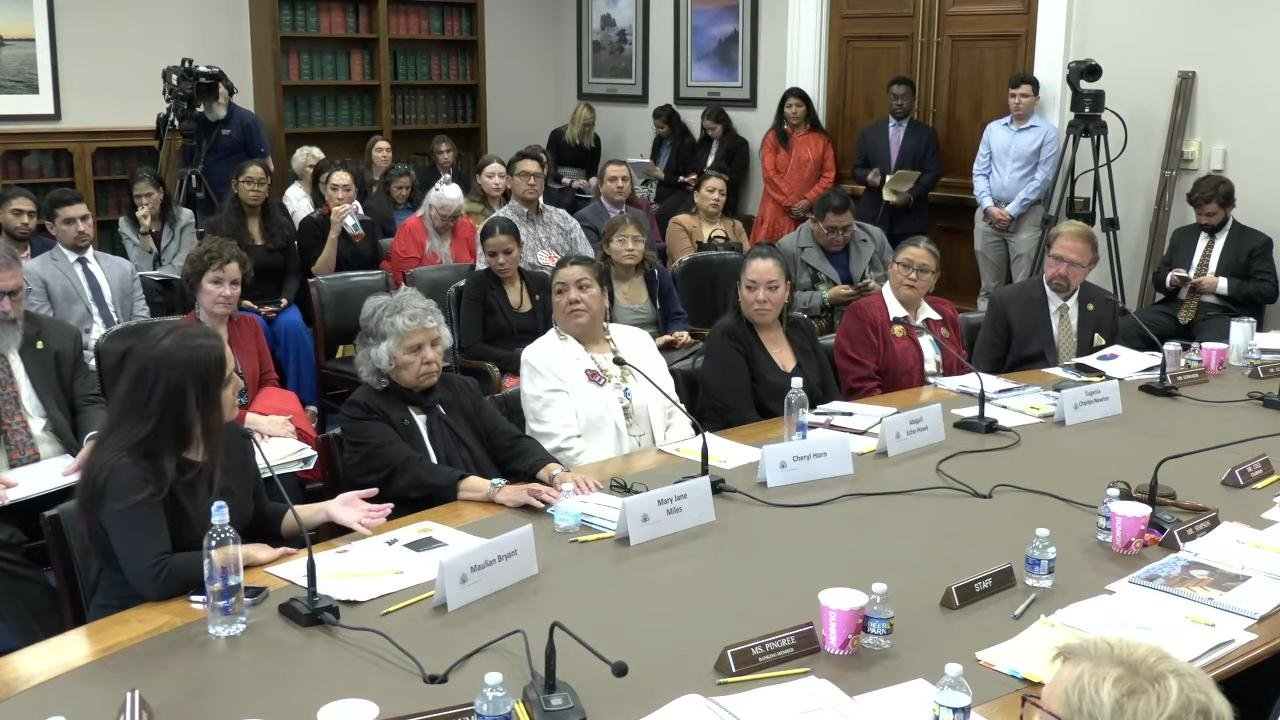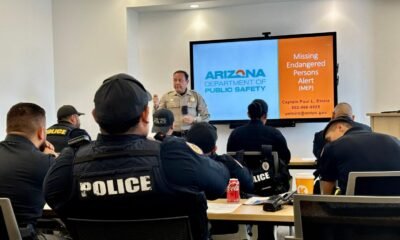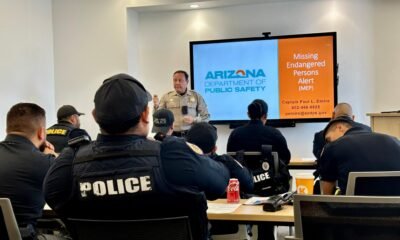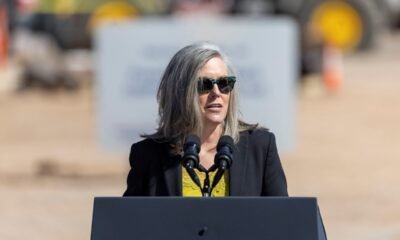crime
Indigenous Women Speak Out: Unraveling the MMIW Crisis Amid Jurisdictional Challenges and Resource Gaps

Navajo Nation Council Delegate Eugenia Charles-Newton addressed a congressional hearing on Missing and Murdered Indigenous People, highlighting the cases of several individuals, including Paul Begay and Ella Mae Begay. During her testimony, she emphasized the urgent need to remember the missing, stating, “These are a few of the names I wanted to read aloud, so they know they are not forgotten.”
Indigenous women are disproportionately affected by these tragic circumstances, with the Bureau of Indian Affairs estimating around 4,200 unsolved cases involving missing and murdered Indigenous peoples. Charles-Newton noted that the known number of missing individuals from the Navajo Nation is 75, while the figure for those murdered remains unclear due to insufficient tracking resources.
“It’s unaccounted for because we lack the manpower to track those cases properly,” she said, shining a light on systemic failures within the infrastructure for tracking crime against Indigenous people. Her testimony was part of a larger discourse, with five Indigenous women sharing their experiences and recommendations with the House Appropriations Committee on November 20.
The hearing revealed ongoing issues related to jurisdiction among federal, state, and tribal agencies, exposing gaps in resources for investigating MMIP cases. Mary Jane Miles of the Nez Perce Tribal Executive Committee articulated the deep emotional toll this neglect takes, saying, “My inner being agonizes over the lack of worth given to Native women.”
Testimonies underscored the pervasive jurisdictional confusion that often hinders justice. Cheryl Horn, a member of the Assiniboine Tribe, illustrated her frustration when seeking law enforcement assistance for her missing nieces, remarking that “none of these jurisdictions want this case.”
Abigail Echo-Hawk, Director of the Urban Indian Health Institute, condemned this jurisdictional maze as an excuse for inaction, suggesting that it reflects a lack of concern for Indigenous lives. Charles-Newton recounted her personal ordeal, revealing how jurisdictional issues thwarted the prosecution of her rapist, highlighting a systemic failure in protecting victims.
The hearing also spotlighted the stigma attached to Indigenous women, where decades of stereotypes contribute to a lack of urgency in investigations. Echo-Hawk articulated the need for systemic accountability, stating, “This cannot depend on one person, one organization.”
As discussions continued, Maulian Bryant of the Penobscot Nation called for recognition of the crisis impacting Indigenous communities, emphasizing that these issues extend beyond law enforcement to historical contexts of oppression. She noted the long-term effects of a society that perceives Indigenous people as “less than human.”
The committee, chaired by Rep. Mike Simpson, aims to address these dire statistics, where over 40% of American Indian women face sexual violence in their lifetime. Alarmingly, homicide ranks among the top five leading causes of death for Indigenous women aged 10 to 24. Simpson announced a proposed funding increase for the Bureau of Indian Affairs’ public safety initiatives, including $30 million specifically for the Missing and Murdered Indigenous Women’s initiative.
The hearing sought not to allocate blame but to identify effective or failing strategies. Echo-Hawk’s plea for accountability in urban settings echoed throughout the session, where she spotlighted the necessity for federal support in implementing solutions from previously passed acts aimed at addressing these crises.
Savanna’s Act and the Not Invisible Act seek to enhance coordination among law enforcement agencies handling MMIP cases. The latter established a commission aimed at generating actionable recommendations, although the process has been slower than expected. Echo-Hawk stressed the need for genuine involvement of urban Indigenous populations to ensure justice.
She also called for greater accountability from the Department of Defense regarding military-related violence against Indigenous people, emphasizing that current data on such matters is crucial. Rep. Chellie Pingree highlighted the complexity of these crises, advocating for comprehensive solutions that encompass the various factors contributing to the current state.
Efforts such as Operation Lady Justice and the newly formed Missing and Murdered Unit within the Bureau of Indian Affairs represent steps toward addressing these unresolved cases. As Chairman Tom Cole stated, the murder rate for Native women is ten times higher than the national average, emphasizing the extreme urgency of this crisis. Cole acknowledged the persistent lack of resources and collaboration needed to tackle these issues effectively.


















